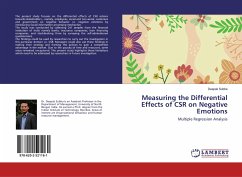Despite the vast research on organizational ethics and organizational deviance, little is known about the perspective of Pakistan on it. Perceived organizational ethical values refer to employees' beliefs concerning what practices are acceptable or appropriate in their organization. These perceptions are a significant factor in employee behavior, with normative influence often assumed to be the underlying mechanism. This thesis incorporates another theoretical lens, namely social exchange theory, and, in particular, negative reciprocity, to suggest that mistreatment at work in the form of abusive supervision and lack of organizational support may undermine the normative influence of perceived ethical values. The results indicate a negative association between perceived organizational ethical values and organizational deviance. This generally negative association was strengthened by abusive supervision with the effect of negative reciprocity on employee behavior, especially when the employer's action seems to be misaligned with perceived organizational ethical values.
Bitte wählen Sie Ihr Anliegen aus.
Rechnungen
Retourenschein anfordern
Bestellstatus
Storno








